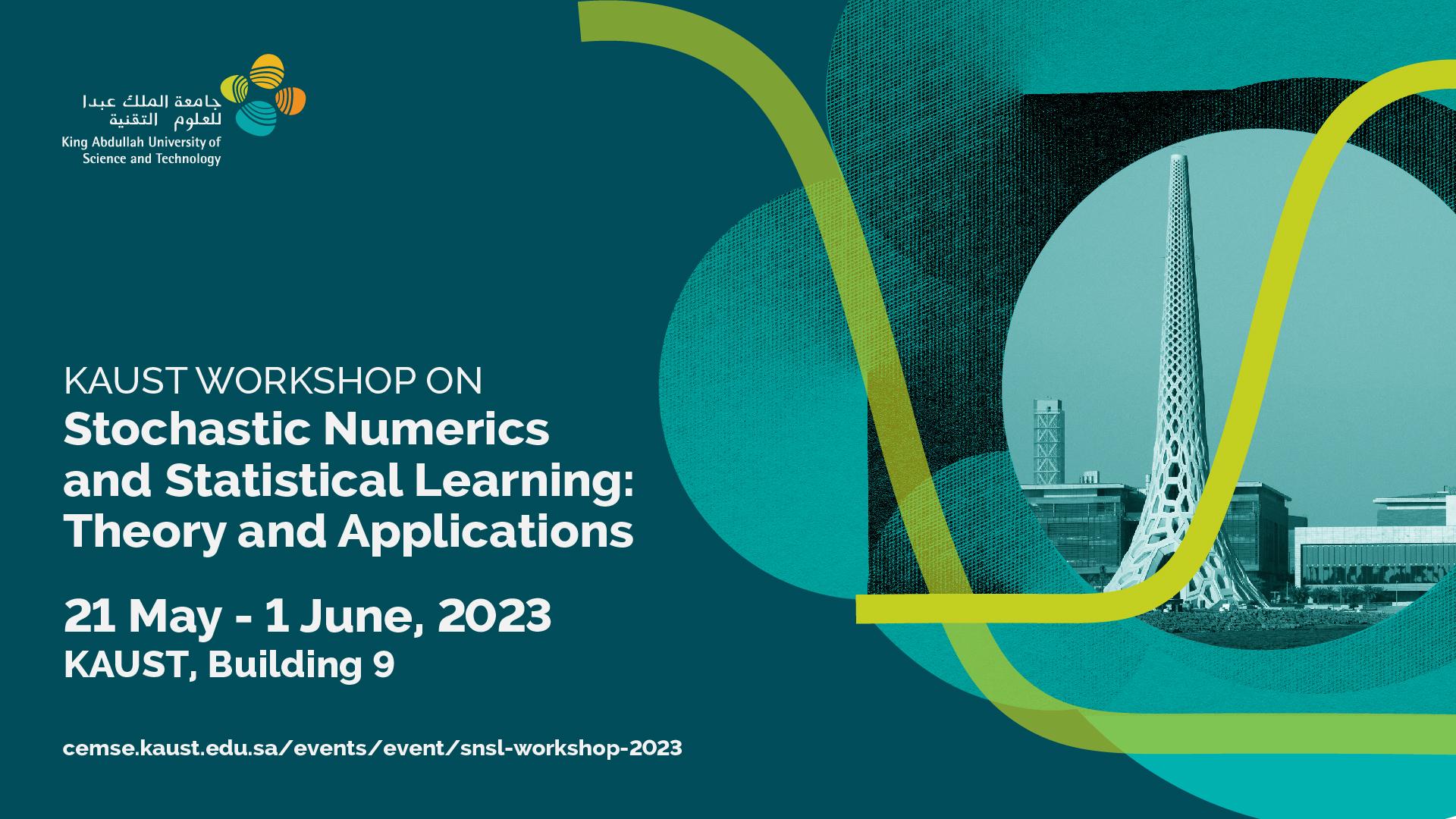About the event
This scientific meeting will concentrate on stochastic algorithms and their rigorous numerical analysis for various problems, including statistical learning, optimization, and approximation. Stochastic algorithms are valuable tools when addressing challenging computational issues.
For instance, Machine Learning, Stochastic Optimal Control, Data Assimilation, and Bayesian Statistics are hot research areas where these algorithms exhibit their strength. The realm of applications is immense and of great interest to KAUST and the Kingdom. We are flexible in showcasing contributions that offer mathematical foundations to algorithmic analysis or showcase relevant applications.
Some of the external speakers confirmed for the event:
- Prof. Nizar Touzi (Centre de Mathématiques Appliquées Ecole Polytechnique);
- Prof. Fabio Nobile (Ecole Polytechnique Fédérale de Lausanne / EPFL);
- Prof. Oliver Pironneau (Université Pierre et Marie Curie - Paris VI);
- Prof. Tony Lelievre (Ecole des Ponts ParisTech and INRIA);
- Prof. Emmanuel Gobet (Ecole Polytechnique);
- Prof. Christoph Belak (Technische Universität Berlin);
- Prof. Nicolas Chopin (Institut Polytechnique de Paris);
- Prof. Alexandro Beskos (University College London - UCL);
- Prof. Nikolas Kantas (Imperial College London);
- Prof. Sebastian Krumscheid (Karlsruhe Institute of Technology);
- Prof. Lorenzo Tamellini (Consiglio Nazionale delle Ricerche - CNR);
- Prof. Christian Robert (Paris Dauphine University - PSL);
- Prof. Maria De Iorio (National University of Singapore)
Poster Sessions
Two poster sessions will be held on May 22 (Building 1 session) and May 29 (Building 9 session). To participate, submit a title and abstract on the registration form. The dates are as follows:
March 7 - Title and abstract submissions are openApril 7 - Title and abstract submissions are closedApril 14 - Title and abstract submissions are closedApril 14 - The link for poster upload will be sent to authors whose abstracts are acceptedMay 14 - Deadline for poster upload
Minicourses
As a part of the workshop, we will offer one minicourse on "Non-Markovian models in finance" by Eduardo Abi Jaber and Christian Bayer.
About the minicourse "Non-Markovian models in finance"
Empirical studies indicate the presence of memory and strong inter-temporal dependence across various phenomena in the fields of finance and economics. The standard Brownian motion and the Poisson process, characterized by independent increments, are unsuitable for modeling such phenomena. In this minicourse, we will consider a class of processes that extends the standard Brownian motion and the Poisson process to include memory; the fractional Brownian motion and Hawkes processes constitute a special case.
Such models lacking the Markov property are getting increasingly popular in financial engineering. Their flexibility allows financial engineers to capture complicated and important structural properties of financial markets. However, the lack of Markov property leads to severe theoretical and numerical problems.
We will give an introduction to financial models with memory. We will develop new mathematical and numerical tools to deal with these (non-standard) processes that go beyond the standard stochastic calculus theory of Markovian processes and semimartingales. We will also explore their properties from modeling perspectives including:
- Interest rates with short and long memory: fast pricing of interest rates products.
- Rough stochastic volatility models (new paradigm in equity modeling, leading to unprecedented quality of fit to implied volatility surfaces over wide ranges of maturities): fast pricing and calibration; Fourier inversion techniques; analytic solutions for the Markowitz portfolio allocation problem with multiple assets with rough volatilities.
- Optimal execution and liquidation with transient market impact.
- Order book modeling via self-exciting Hawkes processes
- Connections between these models at different time scales (from high-frequency trading to macroscopic scales)
Youtube Channel
The previous talks and recorded poster presentations are available at the workshop's youtube channel.
Agenda
View Workshop's Agenda.
